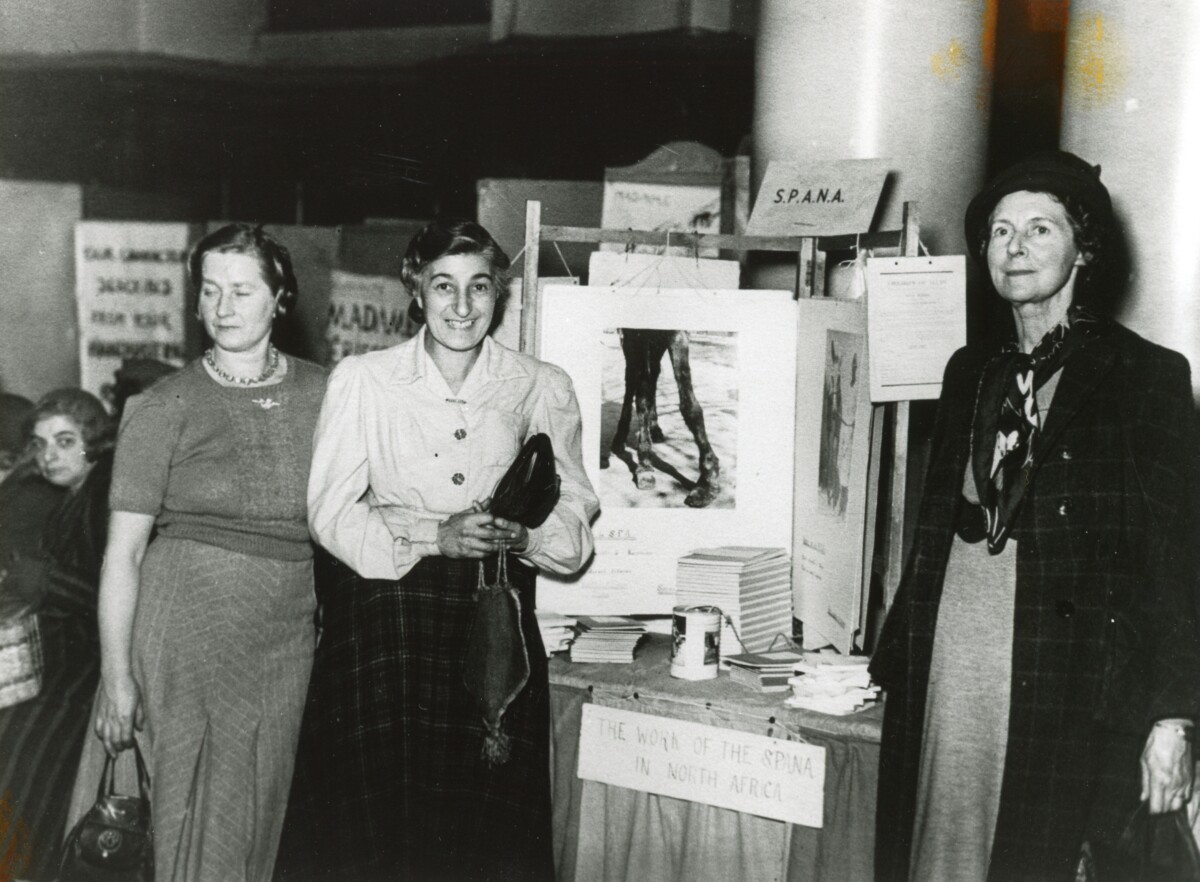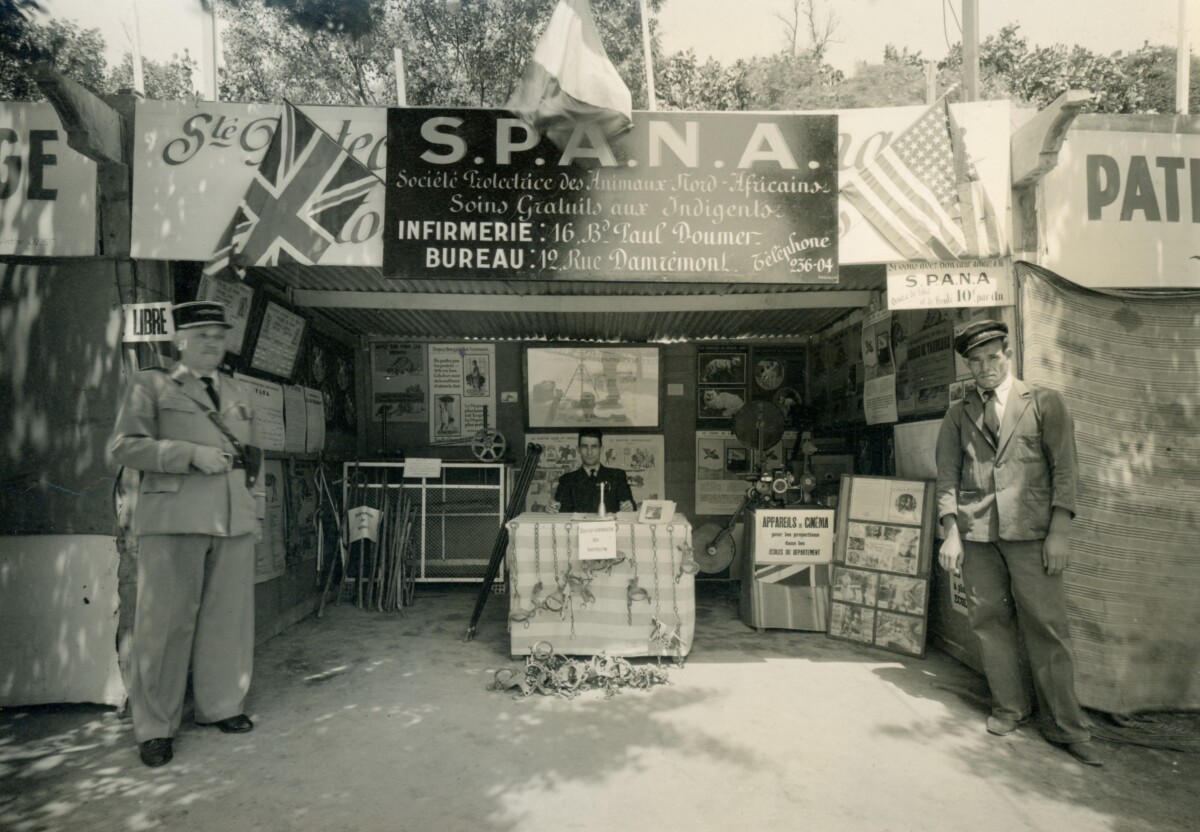SPANA – the Society for the Protection of Animals Abroad – officially celebrated 100 years of supporting the welfare of working animals on 2 October. It has also launched a new five-year strategy with the central ambition of further expanding reach and impact, and delivering a sustainable transformation to the welfare of working animals.
The world’s first global charity dedicated to supporting working animal welfare in low-income countries, SPANA was founded in 1923 and now works in 23 countries across the world. Its work has always been funded entirely by voluntary donations. In 2000, SPANA’s total income was £1.7 million, and last year it reached over £8.6 million with 40,373 individuals and organisations worldwide funding its work through 243,417 gifts and donations.

SPANA’s beginnings
The charity was founded by British mother and daughter, Kate and Nina Hosali, who travelled across North Africa in the early 1920s and were struck by the poor condition and neglect of many of the working animals they encountered. Following their return to Britain, they established SPANA, combining the treatment of working animals in need with the training of owners in good animal care and the education of children about animal welfare. The charity’s global education programme was formally established by Nina Hosali in 1930.
Last year it provided care and support to 306,412 working animals. In 2022, SPANA also taught animal welfare lessons to 87,241 children and provided training in animal care to 89,924 working animal owners.
This year, SPANA has responded to the earthquake in the High Atlas Mountains in Morocco. Hundreds of injured and abandoned animals received emergency treatment, feed and water as part of its most ambitious emergency response to date.

Fundraising and appeal highlights from SPANA’s first 100 years
- Following the formation of SPANA in 1923, voluntary donations from supporters enabled the charity to develop its work and set up its first veterinary centres and mobile clinics. These included SPANA’s first veterinary centre, which opened in Tunisa’s capital in 1927, and further centres across Algeria, Morocco and Tunisia. Its first motorised mobile clinic was established in Tunisia in 1930.
- In the 1940s, SPANA held a fundraising exhibition at a department store called Stagg & Russell, in Leicester Square, London. The two-day exhibition included short talks and a film show. SPANA celebrity ambassadors at the time, including film stars Phyllis Neilson-Terry, Nancy Price, Sybil Thorndike, Louise Hampton, celebrated pianist and actress Yvonne Arnaud and artist Clemence Dane, all attended the event and gave talks. Also in the 1940s, SPANA held a fundraising dance at Grosvenor House Hotel, in London. Celebrity ambassadors Vic Oliver and Frances Day provided cabaret for the event.
- In 1966, SPANA developed the charity’s first mass-audience fundraising campaign – a humane bit appeal. This appeal enabled the owners of working animals to exchange old, worn, rusty and ill-fitting bits for comfortable new ones. At exchange, SPANA also trained owners in the importance of safe, well-fitting equipment. The charity’s work to ensure working animals are provided with suitable equipment continues today. Last year, it distributed 9,099 pieces of humane equipment, including 190 humane bits, to improve the welfare of working animals.
- Today, SPANA generates income via a fundraising, marketing and communications programme encompassing individual giving, a major donor programme, trusts fundraising, corporate fundraising, community and events fundraising, plus gifts in Wills. Its regular giving programme is supported by its Stable Sponsor product, which allows donors to contribute to the running of our lifesaving centres across the world. SPANA also has a retail programme, Happy Hooves, which allows supporters to buy working animal-themed merchandise and virtual gifts in aid of the charity’s work.
- In 2023, SPANA ran successful appeals themed around treating animals suffering from harness wounds, protecting animals from the deadly impact of plastic pollution, and a centenary appeal, themed around its new organisational Strategy 2023-27 and its plans to transform the lives of working animals across the world.
Commenting on the centenary, Linda Edwards, Chief Executive of SPANA, said:
“SPANA is marking this incredible milestone of 100 years of helping working animals in need. We are celebrating the vital difference the charity has made to the lives of generations of working animals over the past century and recognising the remarkable legacy of our founders, Kate and Nina Hosali.
“The world has changed so much since Kate and Nina began the work that we continue to this day. But what hasn’t changed is our determination to build a better future for working animals.
“The need for SPANA’s work is greater today than ever. The welfare of working animals is under severe threat from major global challenges such as climate change, increased political and economic instability, and rising global poverty.
“As we celebrate 100 years of SPANA’s critical work, we are looking to the future and are focused on delivering a true and lasting transformation to the lives of working animals across the world.”
from UK Fundraising https://ift.tt/7X8xSDT
0 comments:
Post a Comment